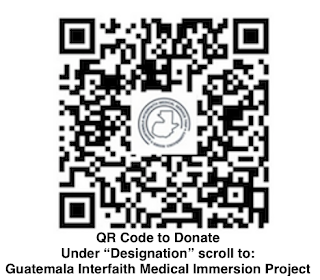If You Listen
It always takes me a bit of sorting through emotions to be *somewhat* ready to talk after returning home from Guatemala. A few days of marinating in uncomfortable and raw and always unexpected feelings before I can even imagine being able to share what is a seemingly indescribable experience. It’s no secret I wear my heart on my sleeve (thus why I literally have a tattoo of Guatemala on my arm), and I’m notorious for being incapable of encapsulating big emotions and explaining meaningful events in a brief summary, so if you’re still here, thank you for sticking around, and I’ll try to keep the rest of this short. But I think this is important, and honestly what I’d want to say to anyone who asks me how my trip was.
Guatemala has been a part of my life for 10 years. I don’t remember who I was before that. I can’t imagine what kind of provider I’d be without this instrumental piece of my world, of myself. The people in rural Guatemala have so much to communicate - so much beauty, strength, pain, knowledge, resilience, gratitude, faith. But you can’t hear it, you can’t see it, you can’t even begin to understand it if you don’t really listen. We are taught as healthcare professionals to auscultate breath sounds and heart sounds and how to differentiate normal from abnormal on a physical examination of a patient. It’s that other part, though, that can’t really be taught. The part where you make a conscious decision to really care, really empathize, really treat every person with dignity and respect and compassion. You choose to be your best self for that person and walk in solidarity with them because you wholeheartedly believe that decency and sharing in the human experience is vital to anyone’s health and survival. But how do you know who you’re fighting for, who you’re treating, and WHY you’re doing what you’re doing if you don’t actually remove your stethoscope, or your blinders, or your prejudices and preconceptions and listen? Truly be WITH them. I try to come back to these thoughts to ground myself when some days feel really tough and listening with just a stethoscope seems easier. I remember that I don’t want to be the reason someone continues to suffer. Because the thing is, our organs can’t really tell us who we are as humans. We have to want to know more about our brothers and sisters (who are not as different as we may have believed), or we’ll miss the point entirely.
So if you think about Guatemala, or any person who you share space with from day to day, know this: people have so much beauty, strength, pain, knowledge, resilience, gratitude, faith. But you’ll only learn that if you’re willing to listen.
Kristen Kellogg, APRN-CNP
Medical Team Triage Nurse




Comments
Post a Comment